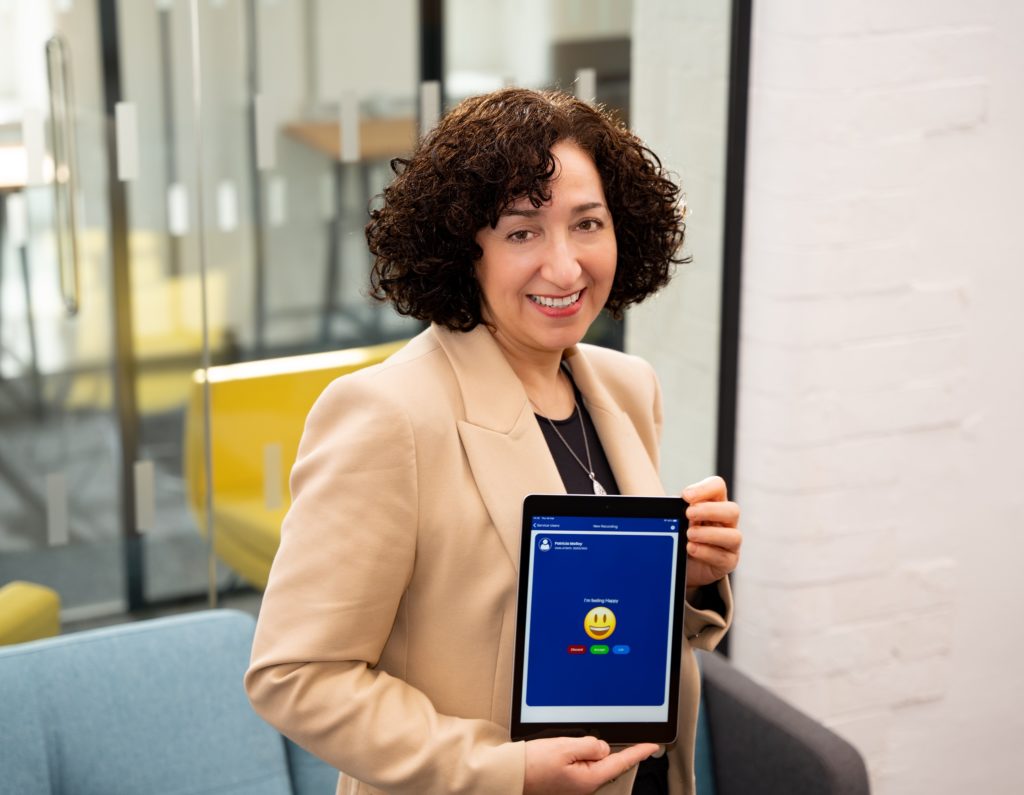A NEW app created by a Dublin-based digital health start-up can interpret the emotions of people who are unable to speak.
Based at University College Dublin, seamlessCARE launched their Empathic app this week, which uses artificial intelligence (AI) to interpret the emotions being expressed by non-verbal individuals.
“In most families and care settings, there is one person who understands each non-verbal individual, but it can be difficult for everyone else to know how that person is feeling,” the creators explain.
“Using the Empathic app, anyone can make a short recording to understand if the non-verbal person is expressing happiness, boredom, frustration or up to 10 emotions.
“This can help to improve quality of life for the non-verbal person and reduce the challenging behaviours that can result from frustration.”
The Empathic app is designed to support people who have fewer than 20 functional words, often described as ‘non-verbal’ or ‘minimally verbal’.
It is aimed at individuals who do not have the intellectual or physical capacity to type or to use other forms of assisted communication technologies – which may be due to an acquired brain injury, learning disability, stroke, autism, dementia or a range of other conditions.
 The app is co-created by Dr Aviva Cohen, whose husband became non-verbal following a severe stroke
The app is co-created by Dr Aviva Cohen, whose husband became non-verbal following a severe strokeHeadquartered at NovaUCD, seamlessCARE was co-founded in 2021 by Dr Aviva Cohen, Dr Cagri Cubukcu and Ian Kennedy.
A spin-out from the UCD School of Mechanical and Materials Engineering, the company was established following the completion of Enterprise Ireland commercialisation funding.
Dr Cohen, CEO and co-founder of seamlessCARE, said this week: “We are delighted to launch our unique app called Empathic.
“Two years of development and testing have shown that Empathic could have a significant impact on the quality of life for non-verbal people as well as their families and others who provide support.”
She explained: “The inspiration for Empathic came from 14 years of caring for my late husband, Steve.
“He became non-verbal as the result of a severe stroke. Over time, I learnt to understand him, but it was always difficult for carers, friends and family to know how he was feeling.”
She added: “At seamlessCARE we are working to support non-verbal people with complex needs who cannot be easily understood. They are among the most technologically underserviced of all those with disabilities.”
The seamlessCARE team has been collecting thousands of vocalisations from non-verbal people to train the artificial intelligence that powers the Empathic app.
The AI is built exclusively on recordings from people who cannot use fluent language; in this way it differs from software that detects emotion in general conversation.
Earlier this year seamlessCARE secured €700,000 in seed funding from angel investor and former HSE chairman Dr Frank Dolphin and Enterprise Ireland.
The company's innovations build upon years of research by Dr Cohen, who has a PhD from University of Essex in the areas of philosophy and psychoanalysis and completed a Marie Curie/ASSISTID post-doctoral research Fellowship at UCD and Queen’s University Belfast.
The Empathic app is now available from Google Play and the Apple App Store for €9.99 per month.
Each account supports up to three non-verbal people and the account holder can invite 20 ‘Companion’ users, without charge.
Empathic is also available for use in larger settings such as nursing homes, schools or respite centres.
Dr Cohen added: “At seamlessCARE we are committed to developing straightforward technologies that address real-world problems.
“Our second product, called Focus, is already in development. This is a video-based care planning API, accompanied by a user-friendly mobile app.
“Empathic and Focus are the first in a pipeline of technologies we are developing to promote respect, safety and efficiency when supporting people with complex needs.”

